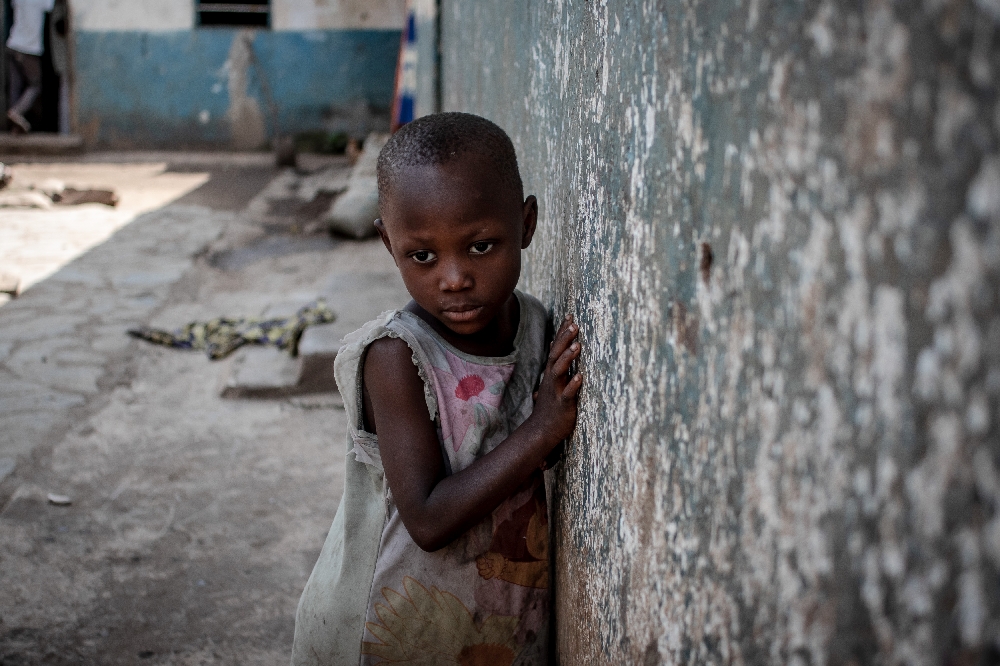Goma (DR Congo) (AFP) – DR Congo’s Mount Nyiragongo has ceased to rumble and Goma, the city that lives in its shadow, is in recovery mode.
But hundreds of parents are still frantically searching for children who became separated from them during the panicky flight to safer ground.
In Ndosho, one of Goma’s poorer districts, relief that the threat from Nyiragongo appears to have receded is palpable. Songs and shouts echo among the wooden houses.
But in other households, there is despair.
Many parents and children became separated when Goma was ordered to be evacuated on May 27, five days after Africa’s most active volcano roared back to life.
About 400,000 residents out of an estimated 600,000 left the North Kivu provincial capital amid fears that after a brief one-day eruption, a potential catastrophe could be on the cards.
Some people began to come back last weekend and the return picked up speed in mid-week as the tremors died down.
On Thursday the authorities said they were studying the possibility of a “progressive return” of the population.
Pierrette Mihindano lost track of her three daughters in the rush to escape.
The search to reunite the family had a happy end.
On Wednesday, she ran towards a vehicle of the International Committee of the Red Cross (ICRC) and her three little girls clambered out to throw themselves into her arms — one so tiny that she can hardly walk.
– ‘Find their tracks’ –
“I was in hospital when they ordered the evacuation of the city,” Mihindano, who also has two boys, said between sobs.
“From that day on, I did not see my three daughters. After I left hospital, I was going crazy at home. I started rushing everywhere, to Sake, to Mungunga, I made appeals on the radio try to find them.”
In the chaos of the evacuation, the three girls had washed up in Minova — a village nestled in one of the bays of Lake Kivu southwest of Goma, and some 50 kilometres (30 miles) from their home.
“It was scary,” said 12-year-old Paruis, the eldest of the girls. “I had a lump in my throat when I thought about my parents — I couldn’t eat.”
For many other evacuees the nightmare of separation continues.
About 1,300 children are reckoned by child protection agencies to have been separated from their families, either during the May 22-23 eruption or during the May 27 exodus.
“We’ve been picking up children every day,” Felicien Katenda, a member of the local Red Cross, said. His colleague Aline Bisimwa hugged a chubby little boy with a troubled look to her chest.
The lad gave his name as Baraka Bahati and said he was three years old.
“This boy was lost on the night of the eruption,” Bisimwa said. “As you can see, I carry him in my arms and he doesn’t cry.”
Child protection agencies say that 978 children have so far been reunited with their loved ones.
– ‘The last child’ –
Community aid networks in a region sadly accustomed to crises have facilitated their work .
“The Congolese public have shown extraordinary solidarity. Many families took in lost children,” said ICRC protection officer Margot Champeix.
Six contact points have been set up by the ICRC in Goma and neighbouring districts where tens of thousands of displaced people have found temporary refuge.
“Host families come in with children they have taken in and have them registered. Then we search and with the grace of God, we find some of them,” said Exode Banzo, a volunteer.
Unicef’s representative in the Democratic Republic of Congo, Edouard Beigbeder, said that more than 300 children are still waiting to be reunited their families.
“It is really important to make sure that in coming days, with the return of displaced people to Goma, all reunifications are carried out, down to the last child,” he said.
Separation has been traumatic for many children and specially-trained counsellors are being brought in to help to help them cope.
“Our mission here is to bring these children back to a normal state. We help them psychologically. But sometimes I also get carried away by their experience,” said one of the workers, Nelson Tumusifu.
Source: New feed


